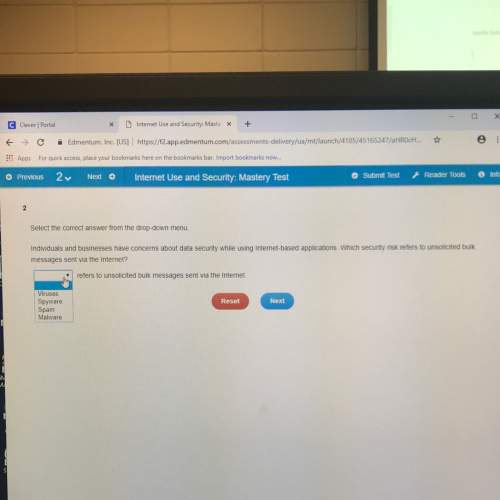
Computers and Technology, 10.06.2020 05:57 fredvales19
Part 1: For this assignment, call it assign0 Implement the following library and driver program under assign0: Your library will be consisting of myio. h and myio. c. The function prototypes as well as more explanations are listed in myio. h. Please download it and accordingly implement the exported functions in myio. c. Basically, you are asked to develop a simple I/O library which exports a few functions to simplify the reading of an integer, a double, and more importantly a string (whole line). In contrast to standard I/O functions that can read strings (e. g., scanf with "%s", fgets) into a given static size buffer, your function should read the given input line of characters terminated by a newline character into a dynamically allocated and resized buffer based on the length of the given input line. Also your functions should check for possible errors (e. g., not an integer, not a double, illigal input, no memory etc.) and appropriately handle them. Then write a driver program driver. c that can simply use the functions from myio library. Specifically, your driver program should get four command-line arguments: x y z output_filename. It then prompts/reads x many integers, y many doubles, and z many lines, and prints them into a file called output_filename. txt. Possible errors should be printed on stderr.
myio. h file
/*
* File: myio. h
* Version: 1.0
*
* This interface provides access to a basic library of
* functions that simplify the reading of input data.
*/
#ifndef _myio_h
#define _myio_h
/*
* Function: ReadInteger
* Usage: i = ReadInteger();
*
* ReadInteger reads a line of text from standard input and scans
* it as an integer. The integer value is returned. If an
* integer cannot be scanned or if more characters follow the
* number, the user is given a chance to retry.
*/
int ReadInteger(void);
/*
* Function: ReadDouble
* Usage: x = ReadDouble();
*
* ReadDouble reads a line of text from standard input and scans
* it as a double. If the number cannot be scanned or if extra
* characters follow after the number ends, the user is given
* a chance to reenter the value.
*/
double ReadDouble(void);
/*
* Function: ReadLine
* Usage: s = ReadLine();
*
* ReadLine reads a line of text from standard input and returns
* the line as a string. The newline character that terminates
* the input is not stored as part of the string.
*/
char *ReadLine(void);
/*
* Function: ReadLine
* Usage: s = ReadLine(infile);
*
* ReadLineFile reads a line of text from the input file and
* returns the line as a string. The newline character
* that terminates the input is not stored as part of the
* string. The ReadLine function returns NULL if infile
* is at the end-of-file position. Actually, above ReadLine();
* can simply be implemented as return(ReadLineFile(stdin)); */
char *ReadLineFile(FILE *infile);
#endif

Answers: 2


Other questions on the subject: Computers and Technology

Computers and Technology, 22.06.2019 13:00, mariahrpoulin9630
Which part of the cpu accepts data?
Answers: 1

Computers and Technology, 22.06.2019 16:10, katherineweightman
When copying and pasting text, the first step is move your cursor type the text select the copy command select the paste command
Answers: 2


Computers and Technology, 22.06.2019 23:30, elizabethburkha
Which text format is this, "the text is transcribed exactly as it sounds and includes all the utterances of the speakers. "?
Answers: 2
You know the right answer?
Part 1: For this assignment, call it assign0 Implement the following library and driver program unde...
Questions in other subjects:

Mathematics, 14.01.2021 01:00

English, 14.01.2021 01:00


Arts, 14.01.2021 01:00



SAT, 14.01.2021 01:00

English, 14.01.2021 01:00

English, 14.01.2021 01:00

Mathematics, 14.01.2021 01:00




